ΔMIDI 001:model D a hardware controller for software Minimoogs
The 001:model D is a hardware MIDI controller designed to give you intuitive hands-on control over Minimoog Model D based virtual instruments.
001:model D
We’ve thought about this concept before in response to the range of specific hardware-for-specific software MIDI controllers from SoundForce. The idea is to provide a physical connection to the software synthesizer and a better user experience. Letting your fingers explore a hardware control surface and everything doing exactly what it should and being reflected in what you see on screen. It feels a bit extravagant when you can repurpose any MIDI controller to control anything you like, but there’s no beating a dedicated controller for emulating the experience of using a hardware synthesizer.
Anyway, ΔMIDI (pronounced Delta-MIDI) would like to have a go at this and its first hardware controller is the 001:model D designed to control software Minimoogs. On the list of compatible VSTis so far are the Arturia Mini V, Native Instruments Monark, UAD Minimoog and GForce Minimonsta. I’d recommend testing out the Minimode from Cherry Audio and the Softube Model 72 although there’s no reason why they wouldn’t work fine once you’ve mapped the controls.
Hardware
As you start to examine the hardware it becomes clear as to why this is an interesting idea and impossible to emulate with a regular MIDI controller. The 001:model D uses 21 analogue potentiometers giving the feel and rigidity of a synthesizer rather than the looseness of digital encoders. There are 6 knobs with stages acting as selectors which you’d never get on a controller. And you have 15 proper, rocking toggle switches which all add to the synth illusion. The layout of course reflects that of the classic Minimoog with everything in its appropriate place.
One useful feature is the Sync button that transmits the current layout to the software Minimoog. Perfect for recalling a patch you were working on and keeping things together while surfing presets. It’s a shame it doesn’t work the other way around.
The controller is class compliant and plugs in via USB. The hardware is built to be open-source and hackable. It is potentially Eurorack-able and comes in black, white and gold. The hardware is made from three layers of fibreglass reinforced laminate and a layer of aluminium. It has open sides which will help keep the costs down.
It’s an impressive build with what appears to be a lot of thought behind the project. The downside to well-made boutique controllers is that they tend to be expensive. The SoundForce SFC-Mini cost more than buying the actual analogue Behringer Model D synthesizer. The Early Bird pricing on the 001:model D is €188, going up to €224 which seems pretty reasonable for the quality of the hardware.
Kickstarter
The 001:model D has just launched on Kickstarter and ΔMIDI has picked up one customer at the time of writing. It’s hoping to raise £13,488 which equates to around 60-70 backers. Stretch goals include making it open source, adding a MIDI output, making a Eurorack version and then a version in white and gold.
I can’t quite decide if it’s a tall order or not. Controllers like the 001:model D are very niche. They are looking for a certain kind of synth player who likes the convenience of software instruments but relishes the hardware synth experience. I do like the sizing and design of the 001:model D.
ΔMIDI has a month to raise the funds. If this interests you then head over to the Kickstarter page quickly to see if you can bag one for the cheapest pledge.
There’s a less-than-flattering video of it in action below. Hopefully, they’ll come up with a more exciting demo soon. But it does give you a flavour and a better idea of the size.
You are currently viewing a placeholder content from Default. To access the actual content, click the button below. Please note that doing so will share data with third-party providers.
2 responses to “ΔMIDI 001:model D a hardware controller for software Minimoogs”

 4,0 / 5,0 |
4,0 / 5,0 | 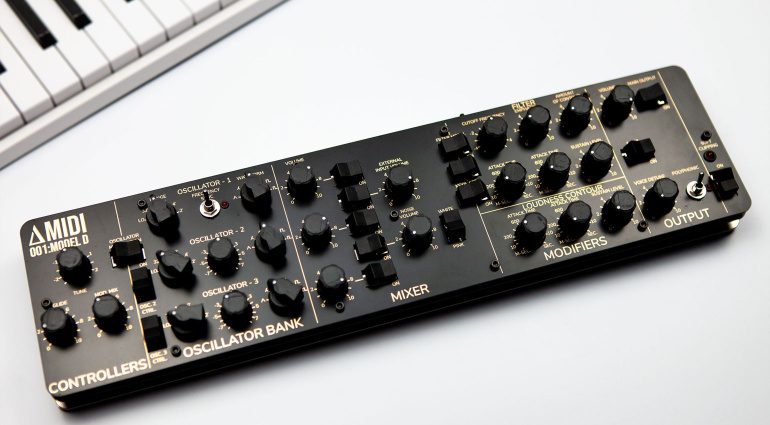
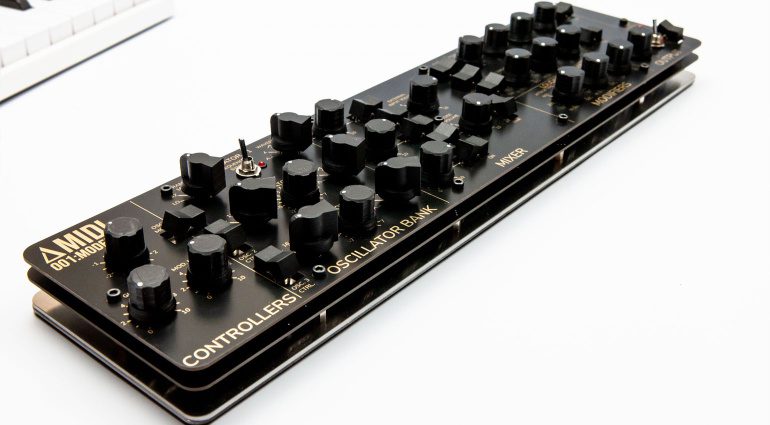
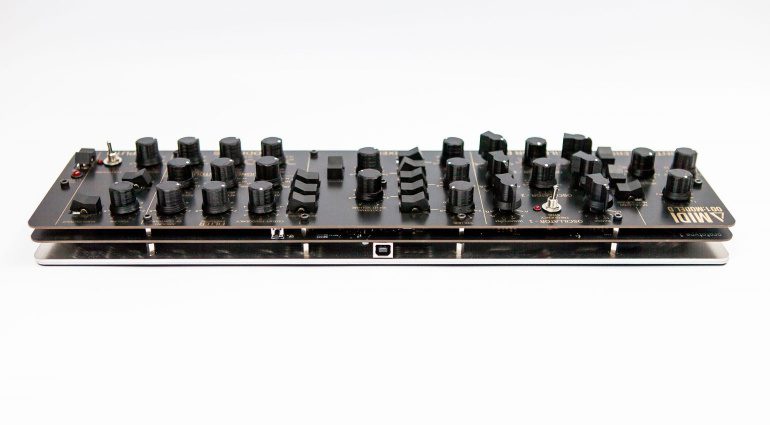



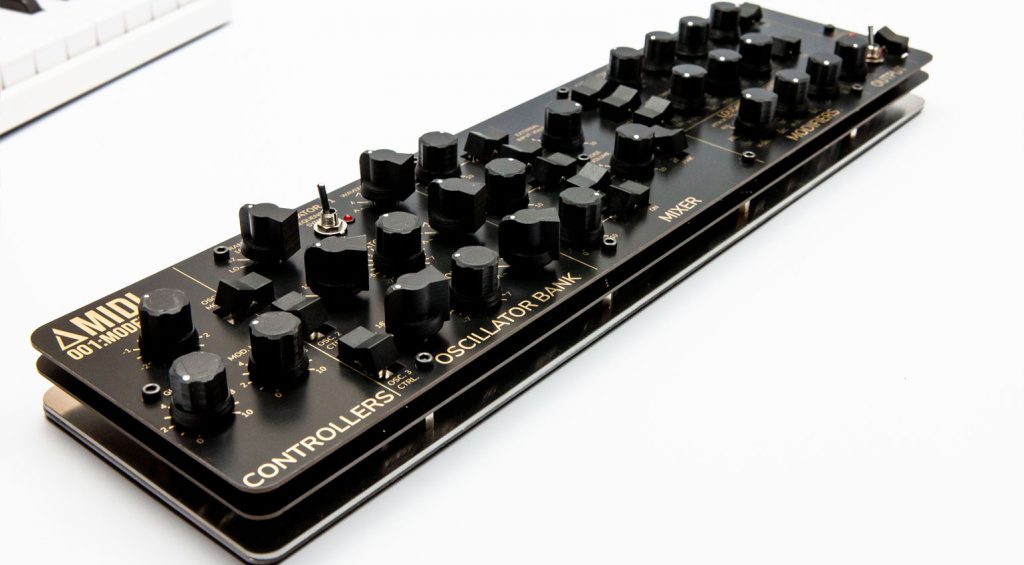
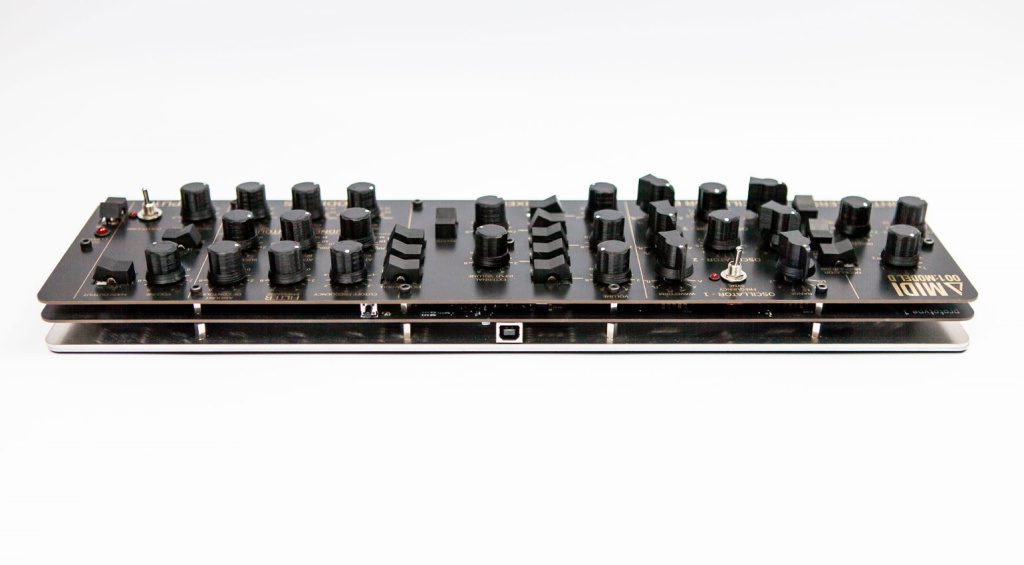
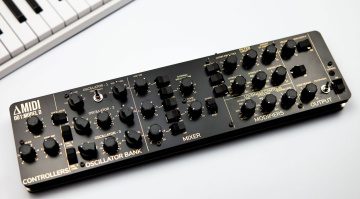

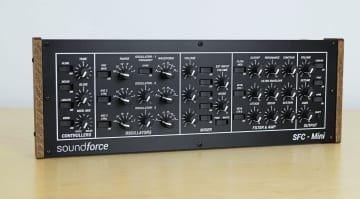
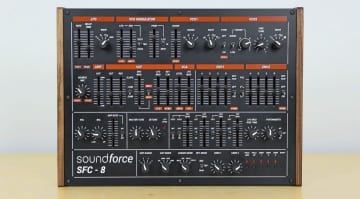
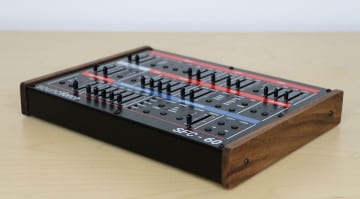
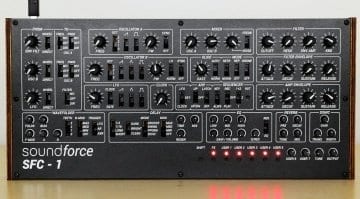
this stuff is just silly; just get the some hardware.
No its not, perfect for automation, but I guess endless LED rings would be much better.